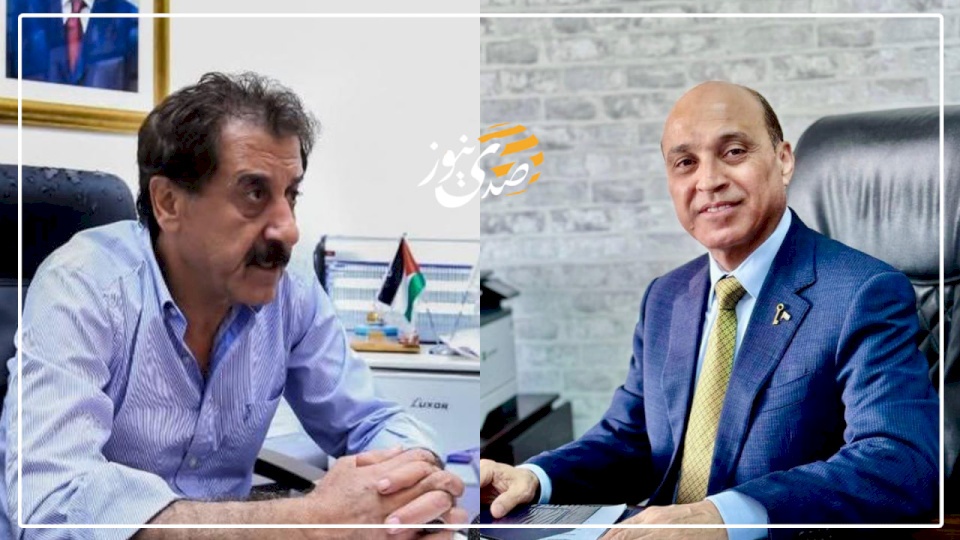
Palestinian Authority at a Crossroads of Reform: Minister and Official in the Grip of Justice
SadaNews - In an unprecedented development in the Palestinian political arena, the past few days have witnessed a series of strict judicial and administrative measures affecting prominent figures in the government and official bodies, a step observers have described as the effective beginning of the reform process promised by the Palestinian Authority for months, in response to increasing internal and international demands.
Suspension of the Minister of Transportation and Lifting of His Immunity
The Palestinian government officially announced the suspension of Minister of Transportation, Tarek Za’rab, from work, following investigations being conducted by the Palestinian public prosecution regarding allegations of financial corruption and embezzlement.
Informed sources told "SadaNews" that ministerial immunity has been lifted from Za’rab, enabling the relevant legal authorities to proceed with investigating him, a precedent for a person in such a position while still holding office.
As part of organizational procedures, Palestinian Prime Minister Muhammad Mustafa decided on Saturday to appoint Minister of Public Works and Housing, Ahed Bseiso, to oversee the Ministry of Transportation until a new decision is issued. Mustafa emphasized the necessity of implementing all provisions of this decision by the relevant authorities.
A responsible source told SadaNews that this measure comes as part of the transparency and accountability program adopted by the government, affirming that "no one is above the law", and that investigations will take their full course, and legal action will be taken based on their results.
Summoning Nazmi Mahna and 15 Other Individuals in Corruption Cases
In another widely debated case, the specialized court for corruption crimes decided, based on a request from the head of the corruption prosecution, to summon the former Director General of the Palestinian Crossing and Borders Authority, Nazmi Mahna, who has been outside the country for about two weeks, to investigate cases related to smuggling antiquities and financial and administrative corruption.
The case that was previously raised and publicly denied by Mahna resurfaced after investigations proved serious allegations, prompting the court to issue a decision to summon him alongside 15 other individuals, including his wife and seven of his children and daughters, among them his son Sami Mahna, the Ambassador of Palestine in Albania, as well as his brother, his aide, four employees from the accounting department at the crossings, and a businessman.
The court decision included a request to lift the banking secrecy on all those summoned, to trace their financial activities, and to lift the secrecy on their information and accounts listed with the Capital Market Authority and licensed exchanges, along with tracking movable and immovable properties and imposing a precautionary seizure on those properties.
Constitutional Reforms on the Horizon
In a related context, Palestinian President Mahmoud Abbas issued a presidential decree last August to form a committee to draft a temporary constitution, paving the way for the transition from authority to state, in a step considered as a response to increasing international demands for structural reforms in the Palestinian governance institutions.
According to the decree, the committee will serve as a legal reference for drafting the temporary constitution, in accordance with the declaration of independence and principles of international law and international legitimacy, human rights conventions, and related agreements. The project aims to establish a democratic governance system based on the rule of law, the separation of powers, respect for rights and public freedoms, and the peaceful transfer of power.
Responses from the Palestinian Street
The Palestinian street reacted strongly to these developments, with some considering that what is happening is the actual beginning of a new phase of accountability and transparency, while others felt that these measures should expand to include all outstanding files and be implemented without selectivity or politicization.
The most pressing question now is: Is the Palestinian Authority genuinely moving towards comprehensive and radical reform, or will these steps remain limited to responding to international pressures? Only the coming days will provide an answer.

High-level sources reveal to SadaNews: Washington seeks to hold a Gaza Reconstruction Conf...

Iran Confirms Khamenei's Death and Announces 40 Days of Mourning

The State of Palestine Strongly Condemns Iranian Attacks on Brotherly Arab Countries

Analysts: The repercussions of striking Iran will impose themselves on the reality of the...

Exclusive SadaNews: What is the Secret behind the Timing of the Israeli-American Attack?!

Israel Deducts 258 Million Shekels from Palestinian "Clearing" Funds for the Benefit of Fa...

Where Does the Second Phase of the Ceasefire Agreement Stand?!

